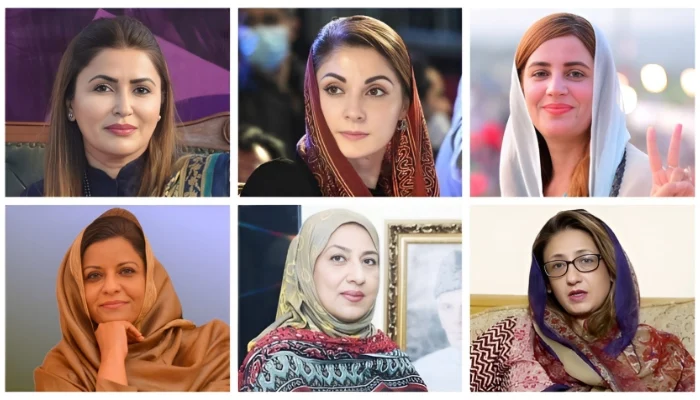Amidst growing calls for gender parity in legislative bodies, the recent February 8 polls have witnessed a historic win for women, with 27 female candidates emerging victorious. This marks a notable increase of 11 more women compared to the 2018 elections, signaling a positive trend towards enhanced female representation in Pakistan’s political landscape.
A total of 882 women candidates contested for seats in the national and provincial assemblies during the 2024 elections, showcasing a significant surge in female participation in the electoral process. Among them, 312 filed nominations for the National Assembly, while 570 vied for provincial assembly seats, reflecting a commendable rise in the number of women stepping into the political arena.
Notably, 111 political parties nominated 275 women candidates to contest on general seats, constituting 4.6% of the total 6,037 candidates fielded. Among these parties, 30 allocated five or more than 5% of their general seats to women candidates, demonstrating a concerted effort towards gender inclusivity in political representation.
Comparatively, in the 2018 elections, only 183 women contested for National Assembly general seats, with a mere eight emerging victorious. However, in the latest polls, a record-breaking 27 women have secured seats across all five assemblies, with 12 in the National Assembly, 11 in the Punjab Assembly, two in the Sindh Assembly, and one in the Khyber Pakhtunkhwa Assembly.
Among the successful candidates for National Assembly seats, notable names include Shizra Mansab Kharal, Maryam Nawaz Sharif, Begum Tehmina Daultana, and Nosheen Iftikhar representing PML-N, and Ayesha Nazir Jutt, Umber Majeed, Zartaj Gul, Shandana Gulzar Khan, Aniqa Mehdi from PTI. Additionally, Nafisa Shah and Shazia Marri from PPP, and Aasia Ishaque Siddiqui from MQM-P have clinched victories in their respective constituencies.
What’s more, out of the 27 winning candidates, seasoned lawmakers such as Gul, Shah, Marri, Ashfa Riaz Fatiana, Faryal Talpur, and Azra Fazal Pechuho stand as pillars of experience in the legislative arena, further enriching the diversity of representation.
This unprecedented success underscores a significant stride towards gender equality in Pakistan’s political landscape, setting a promising precedent for inclusive governance and representation in the country.


